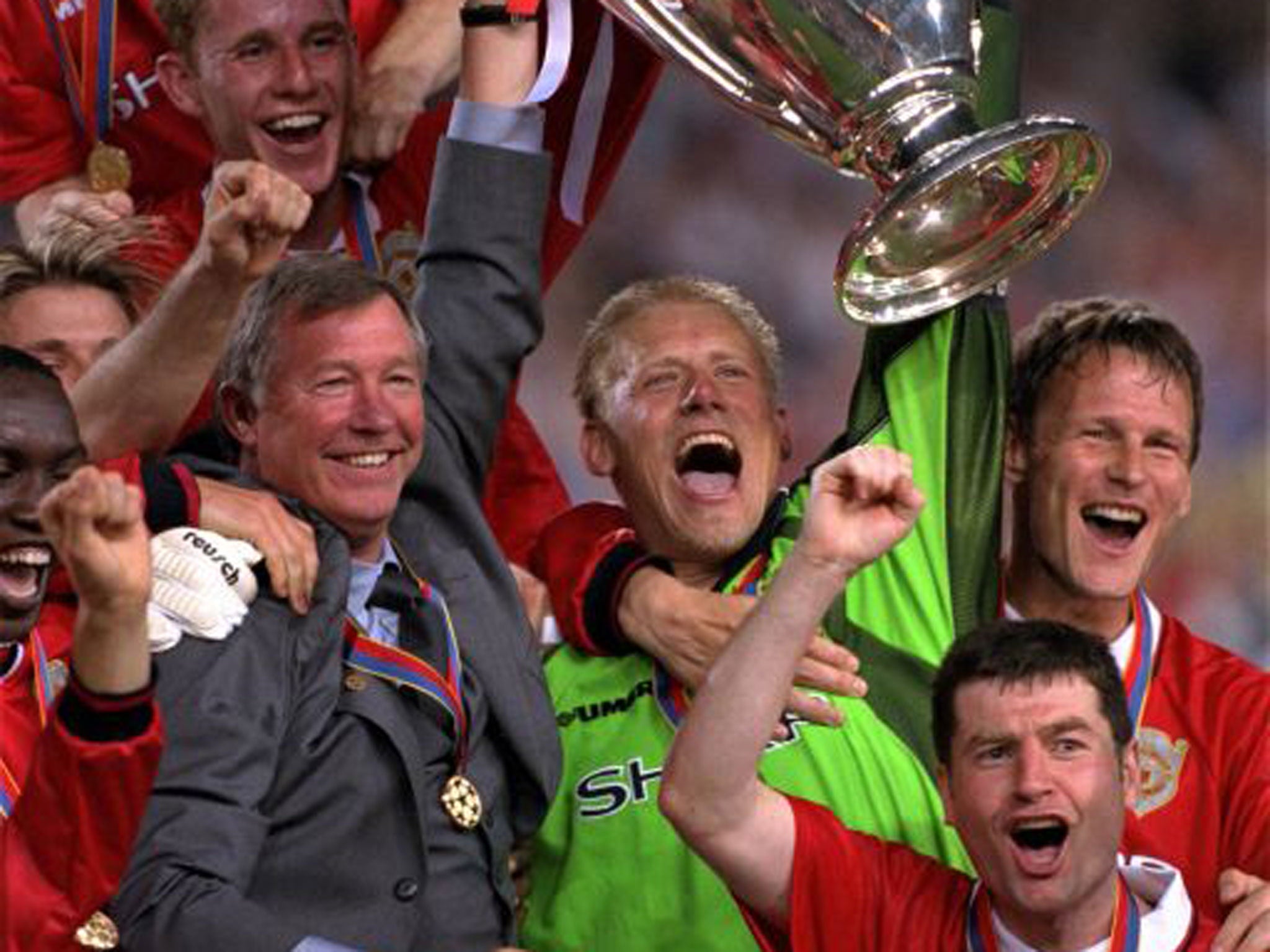Glenn Moore: Sir Alex Ferguson longevity is due to Manchester United's power to adapt – often within a single game
United deployed a different starting formation in each of the three Champions League finals they played in the last six seasons

Peers and players have frequently ascribed Sir Alex Ferguson’s longevity to his ability to move with the times, adapting, for example, to a world where agents have as much influence as managers.
The same is true on the pitch. Ferguson’s teams have evolved in style and personnel to take into account changes in the game and in Manchester United’s ambitions. The first aim was to win the league title after so many fallow years. In the English game of the time that demanded a powerful, high-tempo side. While Ferguson has always played with wingers he realised early on that playing the two he had inherited from Ron Atkinson, Jesper Olsen and Gordon Strachan, left the team too lightweight. He wrote: “When we turned up at places like Wimbledon we ended up getting completely mashed”.
So he brought in steel, introducing a spine of Steve Bruce, Paul Ince, and Mark Hughes. One moment he recalls from the title-winning season is a late first-minute challenge by Vinnie Jones at Wimbledon on Ince. Ferguson said: “Incey had the perfect answer. He climbed to his feet and just laughed in Vinnie’s face.”
That team conquered English football, winning successive titles, the latter United’s first Double in 1993-94, but was swiftly outmanoeuvred in Europe. After being thrashed 4-0 in Barcelona, and 3-1 in Gothenburg, Ferguson knew he had to drum into his team the importance of retaining possession. The gung-ho 4-4-2 which served United so well at home left them exposed abroad. The wingers needed to tuck in and a striker to drop off or they would be picked off in midfield.
Watching United in those years, the evolution was a slow process. Initially the only difference was that Bruce and Gary Pallister would pass the ball to each other 10 times before hitting a 50-50 ball forward. But then Gary Neville and David Beckham became a potent outlet on the right, Ryan Giggs would drift in off the left flank, Eric Cantona, then Teddy Sheringham or Dwight Yorke would drop into midfield. United began to play at a more mixed tempo, quickening the pace when they needed to, and always with an eye to a fast counter-attack.
Goalkeeper Peter Schmeichel had been expert at launching those with his quick, long throws. After some poor initial successors he was eventually replaced by Edwin van der Sar, chosen in part because of his superb distribution.
Possession and width have remained hallmarks of Ferguson’s teams but, as the years have gone by, there has been much greater flexibility about them. The base is always a back four (aside from a brief three-centre-back experiment in the 1990s) but the holding midfielder is now as likely to be a passer, like Michael Carrick, as a tackler.
Ahead of him players such as Cristiano Ronaldo, Wayne Rooney, Danny Welbeck, Ashley Young and Park Ji-sung have been employed in a variety of positions, often within the same game. United deployed a different starting formation in each of the three Champions League finals they played in the last six seasons.
Throughout Ferguson has never lost sight of the need constantly to regenerate. Everton were champions in his first season at United. Seven years later they were bottom in November and he noted: “It’s a great reminder to ourselves, to make sure you keep that momentum going, to make sure the players’ ages are right, that the flow of new blood is coming into the team all the time. If you stop you suffer the consequences.”
Join our commenting forum
Join thought-provoking conversations, follow other Independent readers and see their replies
Comments